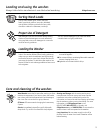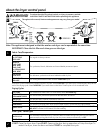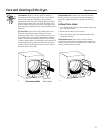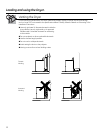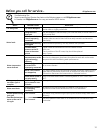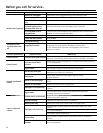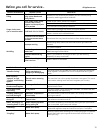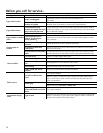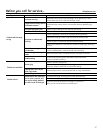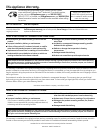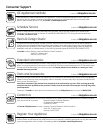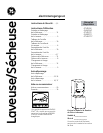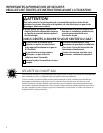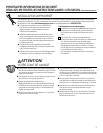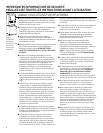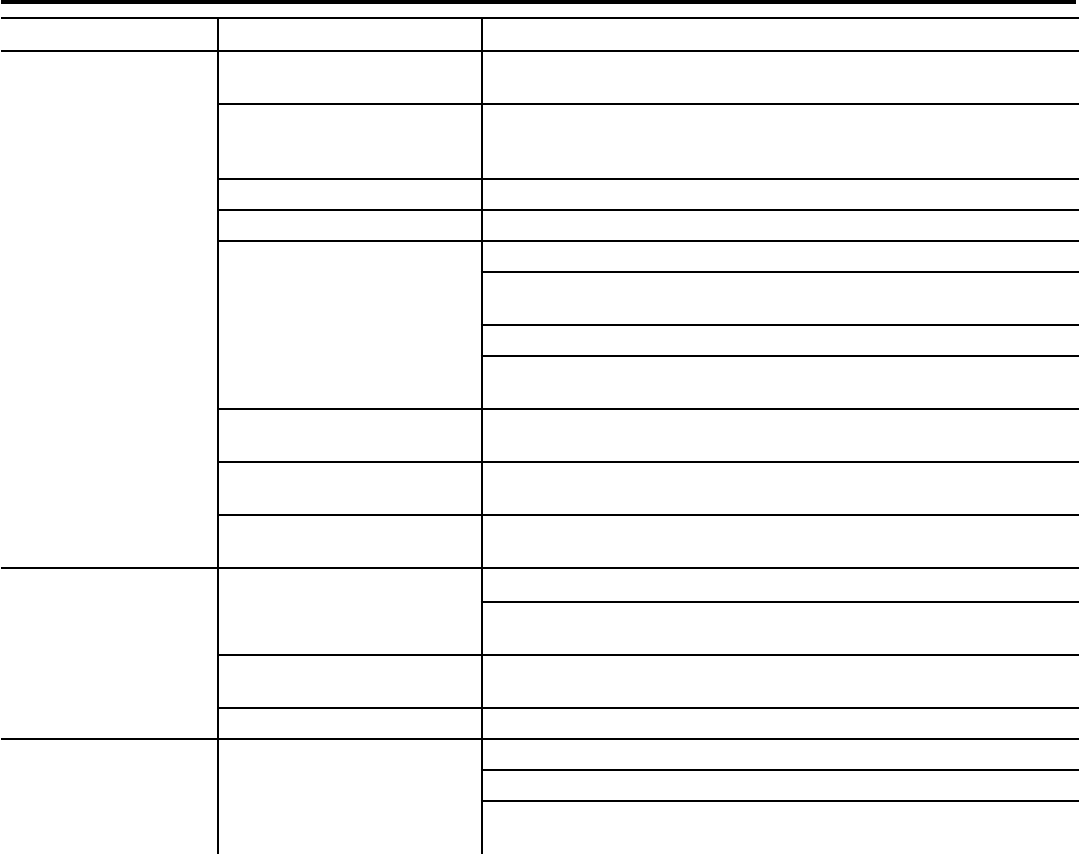
17
Before you call for service…
GEAppliances.com
Dryer Problem Possible Causes What to do
Clothes take too long
to dry
Improper sorting
Separate heavy items from lightweight items (generally, a well-
sorted washer load is a well-sorted dryer load).
Large loads of heavy fabrics
(like beach towels)
Large, heavy fabrics contain more moisture and take longer to dry.
Separate large, heavy fabrics into smaller loads to speed drying
time.
Controls improperly set Match control settings to the load you are drying.
Lint filter is full Clean lint filter before every load.
Improper or obstructed
ducting
Check installation instructions for proper ducting/venting.
Make sure ducting is clean, free of kinks and unobstructed.
Check to see if outside wall damper operates easily.
Check the Installation Instructions to make sure the dryer venting is
correct.
Blown fuses or tripped cir-
cuit breaker
Replace fuses or reset circuit breakers. Since most dryers
use 2 fuses/breakers, make sure both are operating.
Overloading/combining
loads
Do not put more than one washer load in the dryer at a time.
Underloading
If you are drying only one or two items, add a few items
to ensure proper tumbling.
Clothes are wrinkled
Overdrying
Select a shorter drying time.
Remove items while they still hold a slight amount of
moisture. Select a LESS DRY or DAMP DRY setting.
Letting items sit in dryer
after cycle ends
Remove items when cycle ends and fold or hang immediately.
Overloading Separate large loads into smaller ones.
Clothes shrink
Some fabrics will naturally
shrink when washed. Oth-
ers can be safely washed,
but will shrink in the dryer
To avoid shrinkage, follow garment care labels exactly.
Some items may be pressed back into shape after drying
If you are concerned about shrinkage in a particular
item, do not machine wash or tumble dry it.



